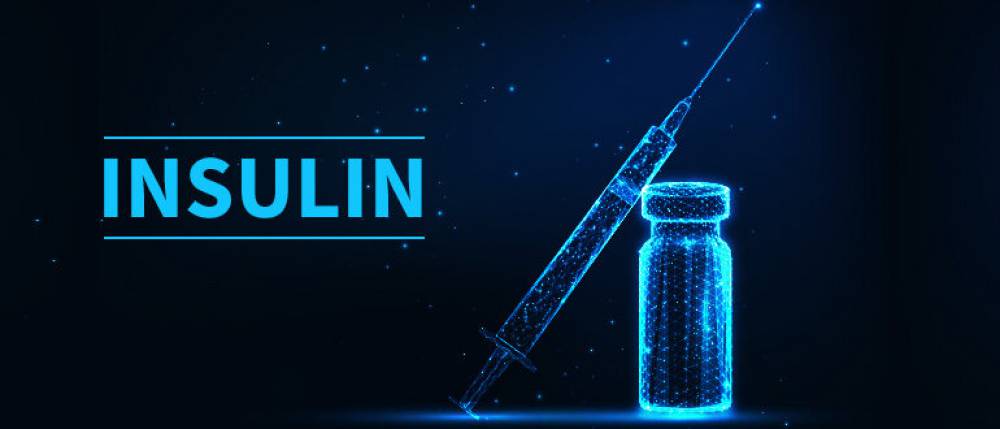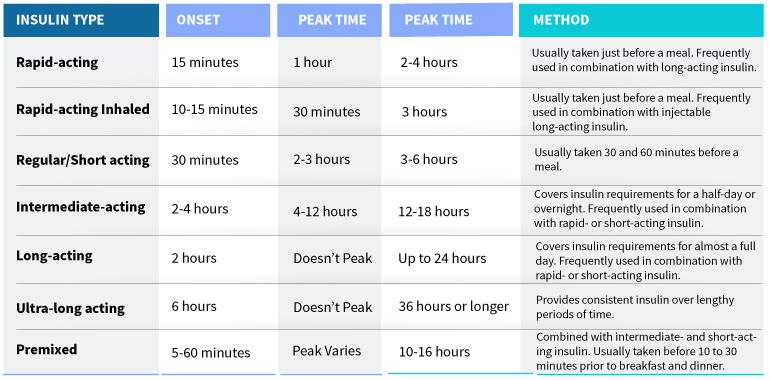Subscribe to get weekly insights
Always stay up to date with our newest articles sent direct to your inbox
Published on 12 Jan, 2023
Updated on 11 Apr, 2025
4611 Views
5 min Read

Written by Care Health Insurance
favorite0Like
favoriteBe the First to Like
Managing diabetes can be overwhelming, but understanding insulin shots can empower you to take control of your health. Did you know that insulin therapy is a lifeline for millions of diabetics? It helps maintain balanced blood sugar levels and leads fulfilling lives.
If you are looking for more information on how insulin shots work and their benefits, keep reading further!
Insulin is a hormone produced naturally by the pancreas. It helps the body use sugar for energy. If the pancreas does not function properly, it may not produce or release the insulin required to manage blood sugars, resulting in diabetes.
Diabetes is a condition in which your body does not produce enough insulin or does not utilise insulin properly.
Insulin transports glucose from the bloodstream to cells throughout the body. Glucose comes from meals. When insulin opens doors, glucose may leave circulation and enter cells, which can be used for energy. Without enough insulin, glucose cannot enter cells and accumulate in the blood (hyperglycemia).
Many medical conditions might trouble your body's capacity to produce and release insulin; some are discussed below:
Multiple types of insulin are used to treat diabetes. They are mainly classified by how fast and how long they work on the body.
Rapid-acting or short-acting insulin lowers blood glucose levels during meals, whereas intermediate or long-acting insulin helps manage the body's overall demands. Both aid in controlling blood glucose levels.
Seven types of insulin injections are classified, ranging from fast-acting to long-acting. Some insulins appear transparent, while others appear foggy. Consult your pharmacist to determine if your insulin should be clear or hazy. Novolog, Humalog, and Apidra are some rapid-acting insulin names. Lantus, Basaglar, and Toujeo are some long-acting insulin names.

Important Terms to Know
Onset- How fast insulin lowers your blood sugar levels.
Peak Time- When insulin is at the most strength.
Duration- For how long insulin works to keep your blood sugar level low.
Insulin shorts are an insulin therapy used to manage blood sugar levels. It is used by people suffering from diabetes. They are the fact-acting insulin formulations that begin to work quickly. It is used to control the blood glucose that rises after meals. The effect of insulin shorts lasts 3 to 5 hours in the body.
How well do you know about Insulin? Knowing how your body uses insulin and how it impacts your condition may help you better understand your health. Insulin is a hormone your body produces to maintain appropriate blood glucose levels.
Beta cells of the pancreas produce it, and the primary function is to transport glucose into the cells, where it is converted into energy. When your body doesn't make enough insulin, glucose accumulates in your bloodstream rather than entering your cells to generate energy.
Insulin shorts are essential for managing Type 1 and Type 2 diabetes. It helps regulate the blood glucose levels by facilitating the uptake of glucose into cells for energy. Consistent insulin use can help maintain better overall glycemic control, preventing long-term health issues related to diabetes.
>> Also Read- Natural Ways to Treat Insulin Resistance
Insulin injective devices are tools designed to deliver insulin to people with diabetes.
Let us explore some of the insulin injection devices:
Insulin injections are essential for managing diabetes. The specific need for insulin varies by individual and medical condition, and doctors should guide patients.
Injecting insulin safely is important for effective diabetes management. Following these steps will ensure that insulin injections are done safely and effectively:
Insulin injections can be highly effective for managing diabetes, but they may also lead to some common side effects.
Many people with diabetes self-administer insulin by injecting it with a syringe. Lines outside the syringe indicate the amount of medication in the needle. With the assistance of your doctor, you can select from various syringe sizes.
Insulin resistance occurs when cells in your muscles, fat, and liver fail to respond to insulin and cannot utilise glucose from your blood for energy. To compensate, your pancreas produces extra insulin, and your blood sugar levels rise over time.
Obesity, high blood pressure, high cholesterol, and type 2 diabetes are all symptoms of insulin resistance syndrome.
India has emerged as the world's diabetes capital. According to one survey, diabetes affects around 8.7% of the population. Long working hours, lack of exercise, and poor eating habits are the culprits. These can harm your heart, blood vessels, eyes, and kidneys, necessitating treatments that may cost you a bomb. However, by altering your lifestyle habits and considering investing in comprehensive health insurance for Diabetes, you can mitigate those expenses.
Our Care Freedom plan is specially designed for people with pre-existing illnesses, where coverage is available from a waiting period of 24months.
The scope of coverage includes pre and post-hospitalisation costs, cashless hospitalisation with network hospitals, organ donor coverage, domiciliary care, daycare treatment cover, automatic recharge of sum insured, yearly health check-ups and so on.
Disclaimer: The above-mentioned information is for reference purposes only. Also, kindly consult a professional medical expert to verify the details of health concerns.
favoriteBe the First to Like
Thyroid : मामूली नहीं हैं महिलाओं में थायराइड होना, जानें इसके लक्षण और घरेलू उपचार Vipul Tiwary in Diseases
शुगर कंट्रोल कैसे करे? जानें, डायबिटीज में क्या खाना चाहिए Vipul Tiwary in Health & Wellness
हाई ब्लड प्रेशर को तुरंत कंट्रोल कैसे करें? देखें इसके उपाय Vipul Tiwary in Diseases
पैरों में दर्द किस कमी से होता है? जानें, इसके घरेलू इलाज Vipul Tiwary in Health Insurance Articles
Silent Epidemic: Fatty Liver Disease Now Targeting the Young! Jagriti Chakraborty in Health Insurance Articles
Iodine Rich Foods: The Unsung Heroes of a Healthy Thyroid and a Sharp Mind Jagriti Chakraborty in Diet & Nutrition
Honey, Jaggery & Sugar: Which Sweetener Wins? Jagriti Chakraborty in Health & Wellness
What Happens to Your Body When You Eat Capsicum Every Day? Jagriti Chakraborty in Diet & Nutrition
According to the studies, three or four injections of insulin a day give the best blood glucose control and can prevent or delay the eye, kidney, and nerve damage caused by diabetes.
Doctors recommend injecting insulin into the fat layer just under the skin. The abdomen, upper arm, and thighs are some of the best sites for administering insulin injections.
Insulin injections are generally not much painful. Most of the patients have observed that the insulin needles only pain like the fingertip lancing required for blood glucose checking.
The insulin pens should be kept in a refrigerator at about 36°F to 46°F (2°C to 8°C) until you're ready to use them. Once opened, they can be kept at room temperature (59°F to 86°F) for up to 28 days.
Yes, most insulin pen needles fit the insulin pens regardless of the manufacturer. The needles come in different lengths and thicknesses that are approved by the FDA.
An insulin pen needle can be only used once and should be thrown away after each injection. Reusing the insulin pen needles could lead to serious health complications.
Always stay up to date with our newest articles sent direct to your inbox
Loading...